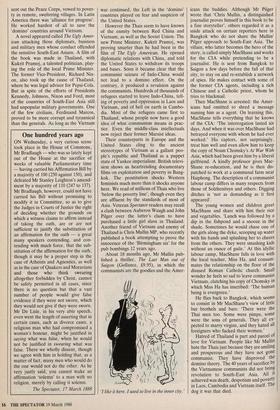One hundred years ago
ON Wednesday, a very curious scene took place in the House of Commons, Mr Bradlaugh — who was so lately kept out of the House at the sacrifice of weeks of valuable Parliamentary time — having carried his Affirmation Bill by a majority of 100 (250 against 150), and defeated Mr Stanley Leighton's amend- ment by a majority of 110 (247 to 137). Mr Bradlaugh, however, could not have carried his Bill without promising to modify it in Committee, so as to give the Judges in Courts of Justice the right of deciding whether the grounds on which a witness claims to affirm instead of taking the oath, are or are not sufficient to justify the substitution of an affirmation for the oath — a great many speakers contending, and con- tending with much force, that the sub- stitution of the affirmation for the oath, though it may be a proper step in the case of Atheists and Agnostics, as well as in the case of Quakers and Moravians and those who think swearing altogether forbidden by Christ, cannot be safely permitted in all cases, since there is no question but that a vast number of people would give false evidence if they were not sworn, which they would not give if they were sworn. Mr De Lisle, in his very able speech, even went the length of asserting that in certain cases, such as divorce cases, a religious man who had compromised a woman's honour, might be justified in saying what was false, when he would not be justified in swearing what was false. There we wholly dissent, though we agree with him in holding that, as a matter of fact, many men who would do the one would not do the other. As he very justly said, you cannot make an affirmation 'solemn' to a man with no religion, merely by calling it solemn.
The Spectator, 17 March 1888
























































 Previous page
Previous page